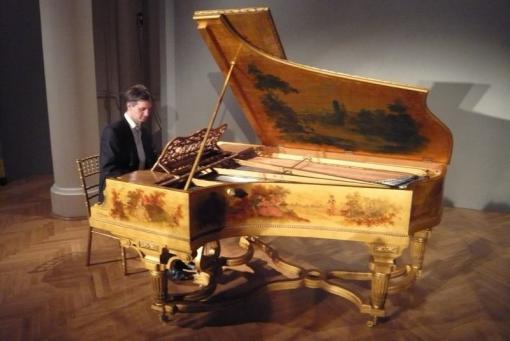Alex Szilasi, soprano vocalist Yvette Mondok and Wrocławska Orkiestra Barokowa in concert together at the Besední dům. Part of the programme is also one of Chopin's piano concerts performed on the period golden piano Pleyel.
>Alex Szilasi, an expert on historical performances of Chopin’s legacy discovered one of the three world rarities – a golden piano – in the inventory of the Budapest Museum of Applied Arts in 2005. The history of this decorated instrument dates back to the end of the 19 century, when the instrument was ordered by polish nobleman Jan Stanisław Zamoyski. Apart from the unusual decoration it is endowed with perfect sound, which is often referred to as the “salon sound”. The manager of the Polish orchestra Olga Jankowska said about the instrument: “The attempts to revive the colour of the piano sound nowadays in Chopin’s concerts require a corresponding chamber orchestra. This difficult role has been taken on by our orchestra - Wrocławska Orkiestra Barokowa – which is famous for the pleasing sound full of delicate finesses. At the concert, you can also hear Chopin’s songs performed by Hungarian soprano singer Yvette Mondok”.
Apart from the works of Fryderyk Chopin you can also hear compositions of Ludwig van Beethoven and Gioacchino Rossini. The concert at the Besední dům will take place on 10 November at 7.30 p.m.













No comment added yet..